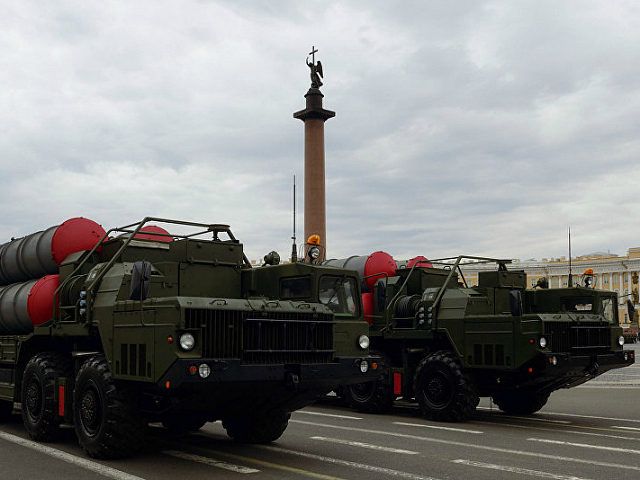Turkish Defense Minister Hulusi Akar said on Tuesday his country is prepared to face U.S. sanctions for proceeding with its controversial purchase of Russian S-400 surface-to-air missiles while continuing to argue Turkey is not threatening American or NATO security by acquiring the Russian weapons.
The U.S. has several complaints about Turkey’s acquisition of the S-400, including the difficulty of integrating the Russian weapon with NATO systems, the danger of Turkey moving further into Russia’s orbit, and the security risks posed by Russian and Russian-trained Turkish technicians having access to both the S-400 and one of the advanced aircraft it was designed to shoot down, the Lockheed Martin F-35 Lighting II.
These apprehensions became even more pronounced when Turkish President Recep Tayyip Erdogan said last week he intends to work with Russia on designing and producing the next generation of Russian missiles, the S-500 program.
Akar insisted Turkey has fulfilled its obligations under the F-35 projects and expects delivery of the planes on schedule. The U.S. Defense Department halted shipments of parts and support equipment to Turkey in April. The Trump administration has spoken of locking Turkey completely out of the F-35 program and finding alternative sources for the components Turkey was to provide.
Opinions vary as to how much damage would be inflicted on the F-35 program by expelling Turkey. The official Defense Department estimate is an 18-to-24 month delay in the program while it secures alternative suppliers and makes financial adjustments.
Turkey, on the other hand, stands to lose over a billion dollars already invested in the program and has no quick, affordable, practical alternative for procuring next-generation warplanes. Russia offers no reliable plane with comparable capabilities and integrating Russian aircraft into Turkey’s defenses would be far more difficult and expensive than adding Russian missiles to the mix.
“We are doing whatever normal bilateral agreements mandate. Though there are some issues from time to time, we are pleased that there has been no sharp turn until now,” Defense Minister Akar optimistically stated on Tuesday.
“In our talks with the United States, we see a general easing and rapprochement on issues including the east of the Euphrates, F-35s, and Patriots,” he added.
“East of the Euphrates” refers to Turkey’s military incursion of Syria to fight the Kurds, who are U.S. allies. The U.S. offered to sell Turkey its Patriot surface-to-air missiles instead of the S-400, but Turkey has thus far declined the offer, saying it believed the Russian system is more advanced. As of Tuesday, U.S. officials remained optimistic that Turkey might reconsider and buy Patriots instead of S-400s.
“There is no clause anywhere in the F-35 agreement saying one will be excluded from the partnership for buying S-400s,” Akar insisted.
“Turkey has paid $1.2 billion. We also produced the parts ordered from us on time. What more can we do as a partner?” he asked.
The Kremlin on Wednesday condemned the American ultimatum to Turkey, which reportedly gives the Turks two weeks to make up their minds.
“We regard this extremely negatively. We consider such ultimatums to be unacceptable, and we are going on the many statements made by representatives of Turkey’s leadership headed by President Erdogan that the S-400 deal is already complete and will be implemented,” said Kremlin spokesman Dmitry Peskov.

COMMENTS
Please let us know if you're having issues with commenting.